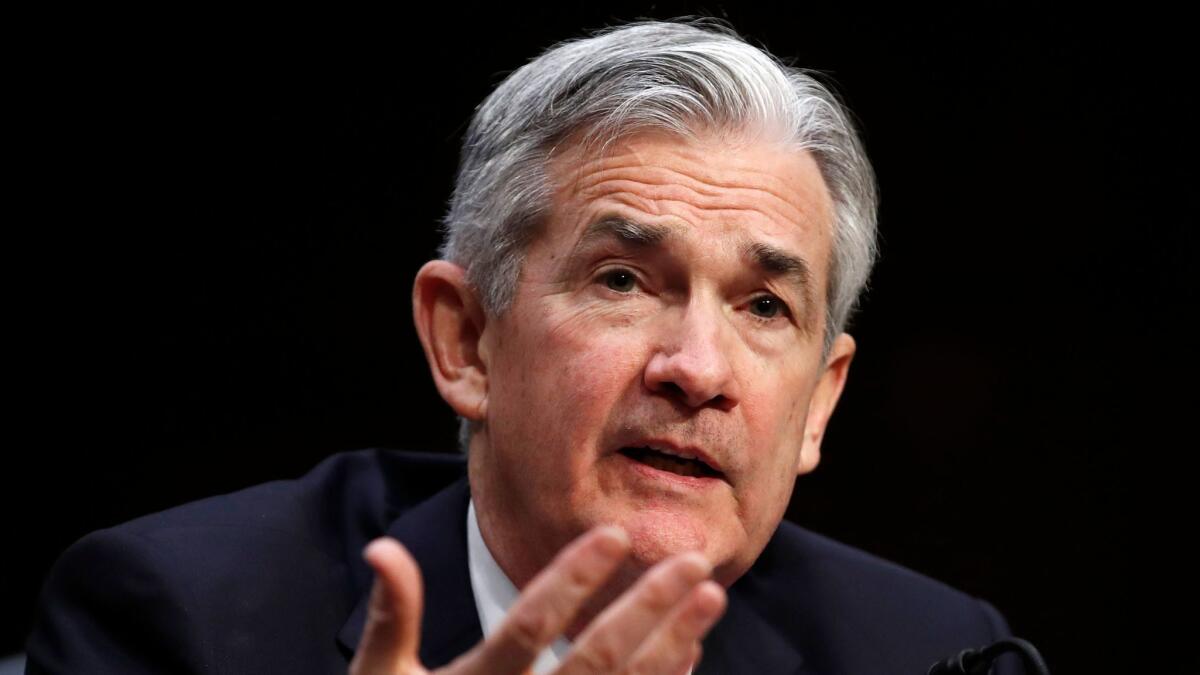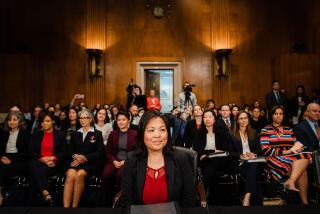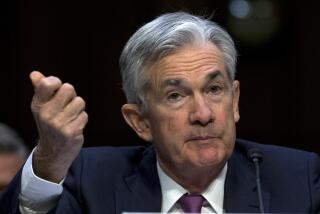Powell gets second Senate committee approval for Federal Reserve chair after nomination expired

Reporting from Washington — A Senate committee on Wednesday for the second time overwhelmingly confirmed Jerome H. Powell to be the next head of the Federal Reserve, a vote that was necessary after his nomination expired at the end of last year.
Powell, 64, a Republican who has served as a governor on the Fed board since 2012, was tapped by President Trump to replace Janet L. Yellen as the central bank’s chairman. Her term expires Feb. 3, and Powell is expected to be confirmed before then, although no full Senate vote has been scheduled.
Powell was approved by voice vote of the Senate Banking Committee on Wednesday, with only Sen. Elizabeth Warren (D-Mass.) dissenting. Warren also was the only no vote when the committee approved Powell 22-1 in a roll call vote on Dec. 5.
But Powell’s nomination expired at the end of last year, requiring Trump to resubmit it and the committee to vote again.
Powell is expected to continue Yellen’s policy of gradually raising the Fed’s key short-term interest rate but has signaled more openness to easing financial regulations.
On Wednesday, the Senate Banking Committee also approved the nomination of Randal Quarles, the Fed’s vice chairman for supervision, for a full 14-year term on the central bank’s board.
Quarles, a former investment fund manager, was nominated by Trump last year and took office in October. But he had been confirmed only to fill the remainder of a term that expires on Jan. 31.
The committee on Wednesday approved his nomination for a full board term by voice vote. Warren voted against Quarles, joined by Sens. Catherine Cortez Masto (D-Nev.) and Jack Reed (D-R.I.). Some Democrats have expressed concerns that Quarles, who oversees the Fed’s regulatory efforts, will be too friendly toward big banks.
Twitter: @JimPuzzanghera
More to Read
Inside the business of entertainment
The Wide Shot brings you news, analysis and insights on everything from streaming wars to production — and what it all means for the future.
You may occasionally receive promotional content from the Los Angeles Times.











